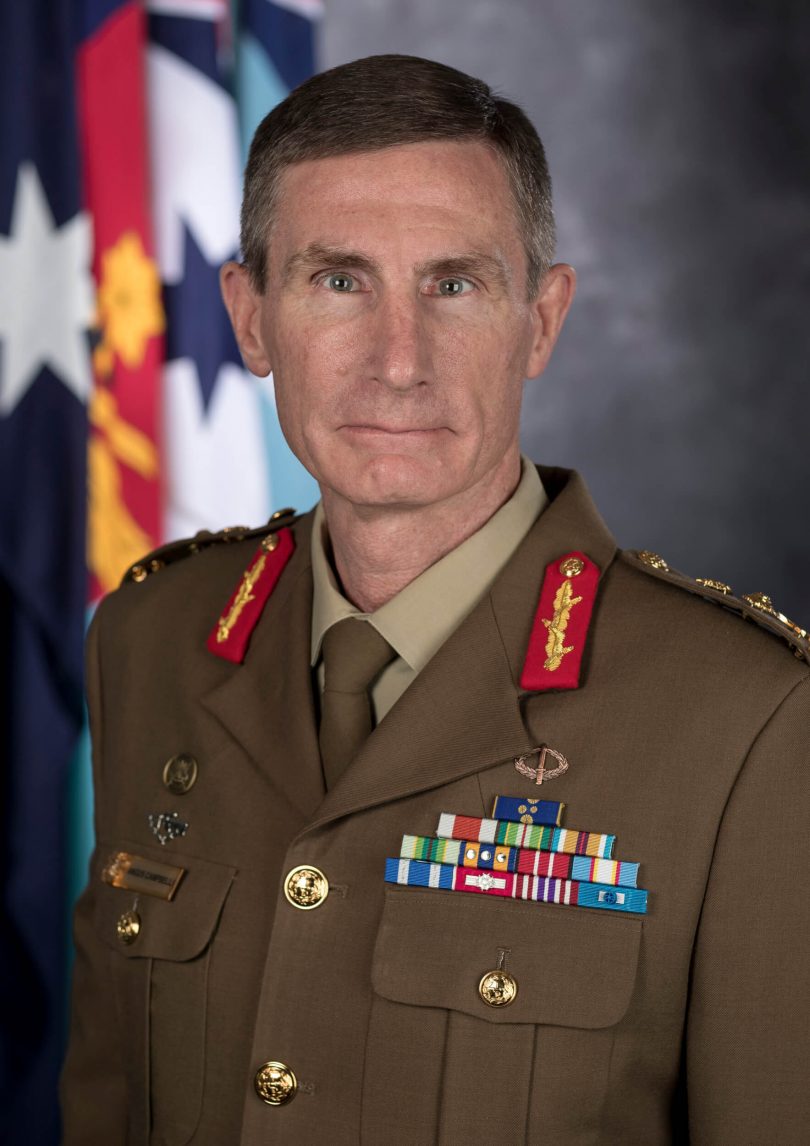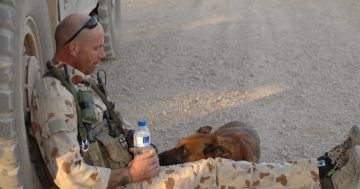
Australian soldiers on foot patrol in Tarin Kowt in August 2008. Photo: Supplied.
In the wake of revelations that Australian forces were involved in the unauthorised killing of 39 men in Afghanistan, a UNSW Canberra researcher from the Australian Defence Force Academy says that “root and branch reform” is fundamentally necessary to combat toxic cultural issues in the ADF.
The Brereton Report, released today, has revealed that 25 ADF personnel were involved in the deaths, but absolves senior Defence hierarchy from knowledge of the crimes.
Fifty-five alleged breaches of the laws of armed conflict were examined over a 10-year period after Canberra military sociologist Dr Samantha Crompvoets uncovered behaviours that were not consistent with the rules of engagement but had been “normalised” within Special Forces. The report includes one redacted incident described as probably the most shameful in Australian military history.
Major General Paul Brereton began the inquiry in 2016, and Prime Minister Scott Morrison has flagged further investigation of potentially criminal matters. The Special Air Service second squadron has been “struck off the Army order of battle” as a result of the report.
But Dr James Connor from UNSW Canberra’s School of Business told Region Media that it was inconceivable higher-ranked officers did not know what was happening, even if formal reports were not made.
“There are two responses, one that is these revelations are awful and shocking,” he said. “The other is that, depressingly, we have heard it all before in 35-odd reports since 1969 that identify exactly these patterns of behaviour, especially within the SAS and commando units.
“It is Groundhog Day for me and anyone else who looks deeply into ADF patterns of behaviour.”
Dr Connor believes the problem primarily stems from tight, small group cohesion, an advantage in combat, but a major problem when the primacy of the group overrides all other loyalties and the group begins to perceive itself as beyond other authority.
The problematic patterns extend further when new group members are “blooded” to build loyalty. In Afghanistan, this could involve junior soldiers shooting prisoners to get their first kill.
Dr Connor says the problems coalesce among some senior NCOs who then become a law unto themselves. He is clear that many NCOs are invaluable leaders but says that in particular pockets of the ADF there is deep resistance to change.
“There is inherent conflict between a newly minted officer who is notionally in command but doesn’t have much experience and a senior NCO who may have been to Afghanistan three or four times and has much more knowledge and power,” he says.
“In that situation, you then get groups of men who ignore command and control processes – and get away with it.
“We want cohesion. We want good teams to work together because that’s how you fight wars. But when it goes too far, it becomes toxic cohesion and toxic loyalty.”
The Brereton Report identified “ethical drift” and a culture of “what happens outside the wire, stays outside the wire”, although everyone who was interviewed during the investigative process clearly understood that the killings were criminal in nature.
The report describes a code of silence among men in the field but Dr Connor says that there are no secrets in deployments and that patterns of behaviour are well known.
SAS and commando units sit outside the general Army hierarchy and have different posting cycles with little change of personnel in many instances, creating few opportunities for cross-pollination of ideas and standards. But Dr Connor says that while the investigative focus has been on Special Forces, the preconditions for abuse exist throughout the ADF.
He suggests that the ADF needs to adopt zero tolerance on misconduct and a renewed focus on reporting culture.
“As these revelations go on, we will have more troopers come forward and say they flagged concerns but were ignored,” he says.
“One of the intrinsic problems in the ADF is that there is only the chain of command. If the next person up the chain isn’t interested where do you go? There are no unions, no OH&S officers, no human rights commissioners.
“There have been recommendations time and time again to enable whistleblowers to notify inappropriate conduct. But the widely held view is that ‘snitches gets stitches’.
“People raise these issues and report them, it gets back to perpetrators sometimes in a matter of days and you can imagine what happens next.”

ADF Chief Angus Campbell said “we are all diminished” by the actions identified in the Brereton Report. Photo: Supplied.
ADF Chief, General Angus Campbell, has offered an apology for any wrongdoing by Australian soldiers.
“If we do not hold ourselves, on the battlefield, at least to standards we expect of our adversaries, we deprive ourselves of that moral authority, and that element of combat power,” General Campbell said this afternoon.
“We are all diminished by it.”
A redacted version of the report is available at Defence.
Original Article published by Genevieve Jacobs on The RiotACT.








